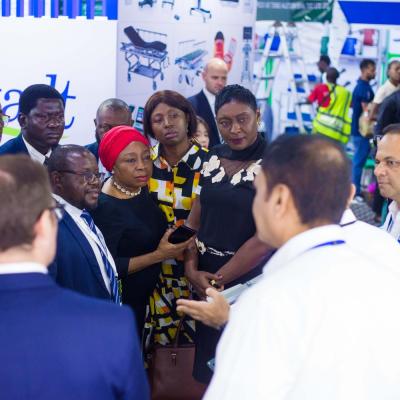Frontpage News (3259)
 Consultant of Obstetrics and Gynaecology (O&G) at the University of Jos (UNIJOS), Prof. Innocent Ujah, has condemned the zero allocation for research projects, especially in the health sector, in the country. The former director-general of the Nigerian Institute of Medical Research (NIMR) stated this at a conference organized by the Medical and Dental Consultants’ Association of Nigeria (MDCAN) in Jos, Plateau State, at the weekend.
Consultant of Obstetrics and Gynaecology (O&G) at the University of Jos (UNIJOS), Prof. Innocent Ujah, has condemned the zero allocation for research projects, especially in the health sector, in the country. The former director-general of the Nigerian Institute of Medical Research (NIMR) stated this at a conference organized by the Medical and Dental Consultants’ Association of Nigeria (MDCAN) in Jos, Plateau State, at the weekend.
He was the guest speaker of the event themed ‘Research: A Veritable Tool in Advancing Health Care Systems in Nigeria’. “I have always said that why the fund is not made available for research in Nigeria may be that our policy-makers do not appreciate research, which drives development.
WHO Lists Funding Gaps, Weak Systems as Barriers to Portable Water, Sanitation
 The World Health Organisation (WHO) has decried the high level of inaccessibility to drinking water and sanitation in poorest countries of the world, while weak government systems and funding gaps have been identified as culprits.
The World Health Organisation (WHO) has decried the high level of inaccessibility to drinking water and sanitation in poorest countries of the world, while weak government systems and funding gaps have been identified as culprits.
The apex health institution has also called on governments of countries across the globe to urgently scale up their investment in strong drinking-water and sanitation systems, in order to prevent a disaster in the nearest future.
 The Federal Government has set the process for the fundamental reforms that will transform the National Health Insurance Scheme (NHIS) into a result-oriented public institution, well-positioned for its mandate as a catalyst for the socio-economic and human capital development of the country.
The Federal Government has set the process for the fundamental reforms that will transform the National Health Insurance Scheme (NHIS) into a result-oriented public institution, well-positioned for its mandate as a catalyst for the socio-economic and human capital development of the country.
The Executive Secretary of the scheme, Prof Mohammed Sambo, who formally assumed office last month, has continued to inspire internal and external support for the scheme, by series of consultations aimed at building consensus around the reforms.
The NRCS Secretary in Katsina, Mallam Bala Useini, made the disclosure on Sunday during a meeting with various stakeholders in the affected local government areas. He identified the affected councils as Sabuwa, Danmusa, Faskari, Safana, Jibia, Batsari and Kankara.
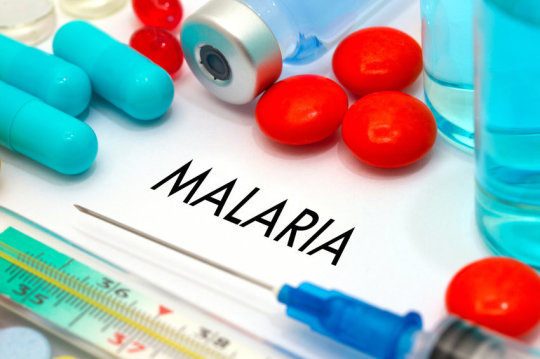 The Federal Government has advised healthcare workers to be truly professional in the distribution of free mosquito nets to the general public.
The Federal Government has advised healthcare workers to be truly professional in the distribution of free mosquito nets to the general public.
Prof. Olugbenga Mokuolu, the National Technical Director on Malaria, National Malaria Elimination Programme (NMEP), gave the advice at the on-going free-Malaria in Kwara, an initiative of Gov. Abdul Razak AbdulRahman, on Monday in Ilorin.
 Cancer has overtaken heart disease as the leading cause of death in wealthy countries and could become the world’s biggest killer within just a few decades if current trends persist, researchers said on Tuesday.
Cancer has overtaken heart disease as the leading cause of death in wealthy countries and could become the world’s biggest killer within just a few decades if current trends persist, researchers said on Tuesday.
Publishing the findings of two large studies in The Lancet medical journal, the scientists said they showed evidence of a new global “epidemiologic transition” between different types of chronic diseases.
WHO Calls for Robust Investment in Nutrition to Save 3.7 Million Lives
 For most nations of the world to achieve Universal Health Coverage and to save a total of 3.7 million lives by 2025, the World Health Organisation (WHO) has urged governments of all countries to invest heavily in nutrition and focus on optimum nutrition at each stage of life.
For most nations of the world to achieve Universal Health Coverage and to save a total of 3.7 million lives by 2025, the World Health Organisation (WHO) has urged governments of all countries to invest heavily in nutrition and focus on optimum nutrition at each stage of life.
The number one health institution in the world noted on Wednesday that health services must integrate a stronger focus on ensuring optimum nutrition as it is estimated that the right investment in nutrition could save 3.7 million lives by 2025.
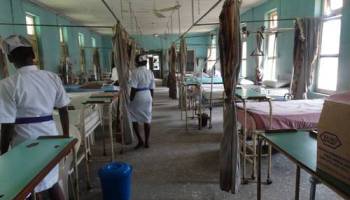 The global trade union federation, Public Services International (PSI), along with two of its Nigerian affiliates, the National Association of Nigerian Nurses and Midwives (NANNM) and the Medical and Health Workers Union of Nigeria (MHWUN), have condemned attacks on health and social care workers in northeast part of the country by the Boko Haram terrorists.
The global trade union federation, Public Services International (PSI), along with two of its Nigerian affiliates, the National Association of Nigerian Nurses and Midwives (NANNM) and the Medical and Health Workers Union of Nigeria (MHWUN), have condemned attacks on health and social care workers in northeast part of the country by the Boko Haram terrorists.
The union in a statement by PSI IDP Project national coordinator, Moradeke Abiodun-Badru, condemned recent upsurge in attacks on health facilities in the Magumeri local government area.
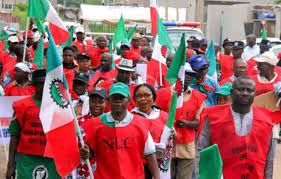 THE organized labour on Thursday renewed its opposition on the proposal by the Federal Government to concession the 22 federal teaching hospitals in the country. The organized labour told the government that health is the foundation of development around the world and that it should not be for profit.
THE organized labour on Thursday renewed its opposition on the proposal by the Federal Government to concession the 22 federal teaching hospitals in the country. The organized labour told the government that health is the foundation of development around the world and that it should not be for profit.
Speaking at the 2019 Federal Capital Territory (FCT) Nurses Week/Scientific workshop taking place in Abuja, President of the Nigeria Labour Congress, NLC, Comrade Ayuba Wabba said that if the government was allowed to concession the teaching hospitals, it could lead to exorbitant cost of medical treatment beyond the capacity of majority of Nigerians.
FG Spends N1.8 Billion on Prevention, Treatment of Malnutrition in 18 States
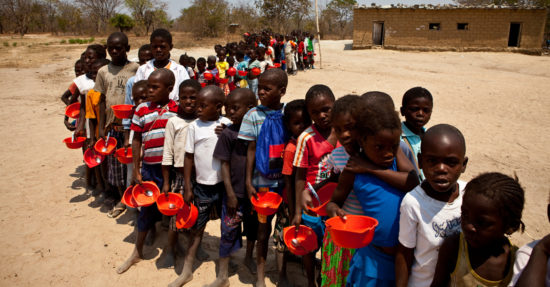 The Federal Ministry of Health says it has disbursed over N1.8 billion for the prevention and treatment of malnutrition in 18 states in the last two years. Chris Isokpunwu, Head Nutrition Division, who made this disclosure in an interview told News Agency of Nigeria (NAN) on Sunday in Abuja, noted that the fund was disbursed between 2017 and 2018.
The Federal Ministry of Health says it has disbursed over N1.8 billion for the prevention and treatment of malnutrition in 18 states in the last two years. Chris Isokpunwu, Head Nutrition Division, who made this disclosure in an interview told News Agency of Nigeria (NAN) on Sunday in Abuja, noted that the fund was disbursed between 2017 and 2018.
Mr Isokpunwu said in 2017, the ministry signed a memorandum of understanding (MoU) with UNICEF for the counterpart contribution for the procurement of Ready to use Therapeutic Food (RU1TF).
More...
 Resident doctors in the South-West have urged President Muhammadu Buhari and the Nigerian Governors’ Forum to prevail upon state governors to pay the salary arrears of their members in the teaching hospitals of state-owned universities.
Resident doctors in the South-West have urged President Muhammadu Buhari and the Nigerian Governors’ Forum to prevail upon state governors to pay the salary arrears of their members in the teaching hospitals of state-owned universities.
The Deputy Leader, National Association of Resident Doctors of Nigeria, South-West caucus, Dr Taofeek Sanni, said the nations’ leaders should move swiftly between now and three weeks to avoid an industrial crisis in hospitals across the country.
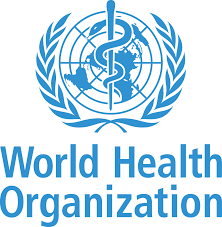 The World Health Organisation has said quality investment in nutrition can save 3.7 million lives by 2025. It also noted that health services must integrate a stronger focus on ensuring optimum nutrition at each stage of a person’s life.
The World Health Organisation has said quality investment in nutrition can save 3.7 million lives by 2025. It also noted that health services must integrate a stronger focus on ensuring optimum nutrition at each stage of a person’s life.
According to a new report titled, Essential Nutrition Actions: Mainstreaming Nutrition Through the Life Course, WHO estimated that the right investment in nutrition could save millions of lives annually.
 The Association of Industrial Pharmacists of Nigeria, NAIP, a technical arm of the Pharmaceutical Society of Nigeria, PSN, has renewed its call to the Federal government to set up pharmaceutical industrial hubs in the country to boost fortunes of the local pharmaceutical manufacturing industry. Making the call in Lagos during the Association’s 2019 CEO’s Forum, a public health consultant and Chief of Party, Promoting the Quality of Medicines, PQM, Prof Chimezie Anyakora described pharma hubs as catalysts for change.
The Association of Industrial Pharmacists of Nigeria, NAIP, a technical arm of the Pharmaceutical Society of Nigeria, PSN, has renewed its call to the Federal government to set up pharmaceutical industrial hubs in the country to boost fortunes of the local pharmaceutical manufacturing industry. Making the call in Lagos during the Association’s 2019 CEO’s Forum, a public health consultant and Chief of Party, Promoting the Quality of Medicines, PQM, Prof Chimezie Anyakora described pharma hubs as catalysts for change.
His words: ”Setting up pharmaceutical industrial hubs in Nigeria, would promote the cheaper cost of manufacturing, better quality due to better regulation, more direct foreign partnership and investment and help in avoiding the mistakes of the oil sector, among others.”
Speaking while receiving the members of ANLCA Western Zone Chapters, led by the Zonal Coordinator, Dr. John DanKatsina Ofobike, on a coursey visit in his office, Adebayo said that as regulators, NAFDAC officials are not police officers, but are trained professionals to direct importers, exporters and Customs brokers to be compliant and imbibe the ideals of international best practices.


